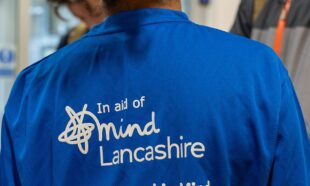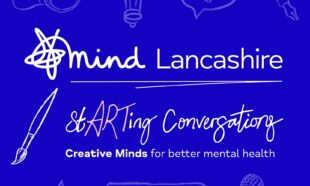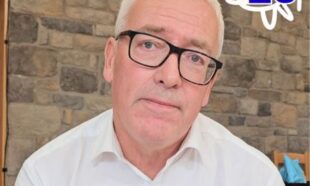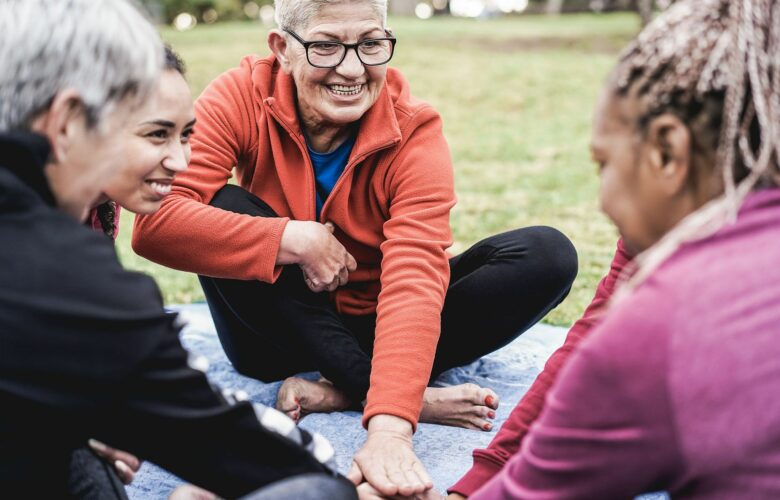A better way of living

A better way of living
My journey through mental health, sobriety and self-discovery
Written: Steve Bell
I want to share something deeply personal. Not for sympathy or recognition, but because I know that sometimes, hearing someone else’s story can be the first step to changing your own.
Four years ago, I sat down with my wife and told her I was struggling – really struggling. I said the words I’d never said out loud before: “I don’t want to be here anymore.” That moment, as raw and terrifying as it was, became the turning point in my life.
Since then, it’s been far from easy. I’ve been on sertraline. I’ve been taken to hospital twice by the police while in crisis, and on the second occasion, I was detained under the Mental Health Act for my own safety. At the time, I felt broken and ashamed. But looking back now, I know it saved my life.
*Content trigger warning: This blog post contains the topics: mental health, suicide and alcoholism.
Mental illness doesn’t discriminate.
One of the hardest things was facing the person I had become – not because I was bad, but because I was unwell. Mental illness doesn’t discriminate, and it certainly doesn’t always make sense. What does make sense is this: getting help changed my life.
In May 2023, after yet another night of drinking to escape reality, I made a huge decision: I gave up alcohol entirely. Not ‘cutting down’, not ‘on special occasions’, I stopped completely. I am proud to say I am now 2 years alcohol free.
Alcohol had always been part of my life. It was social, expected. But for me, it was also a major catalyst in my decline. I may not have been dependent in the textbook sense, but alcohol caused problems for me – big ones. Especially when mixed with antidepressants. Alcohol took everything I was doing to help myself and dragged it backwards. I didn’t have control of how much I drank, so it was definitely a problem.
Giving my time to what matters most.
Since going sober, my life has changed dramatically. I laugh more. I’m more present for my children. I am closer than ever to my wife, (who stood by me when things were at their worst), and I no longer waste time in the pub with people who were just there for convenience. I give my time to those who matter – my family and the friends who showed up when it really counted.
But my recovery wasn’t just about what I gave up. It was about what I gained. Through my GP, I got access to counselling – something I promised my wife I’d try. I was lucky enough to be matched with a counsellor who genuinely helped me change the way I think. She gave me tools to cope. When my life felt like a storm-battered boat, she taught me how to drop anchor, rest and let the storm pass.
I’ve come to understand that mental health isn’t linear, and healing is not about ‘getting back to normal.’ It’s about finding a new way to live – a better one.
Keep moving forward.
That journey inspired me to help others too. In April 2022, I founded a men’s mental health and wellbeing football group called Talking Football. It’s a space where men can talk, connect, and support each other. It helps me just as much as it helps them. We play football, but it’s about so much more than the game. It’s about brotherhood, understanding, and not having to pretend.
Since then, I’ve gone further. I recently completed a Level 2 qualification in Mental Health Awareness, and I’m currently studying Level 2 Counselling Skills. I want to keep learning, keep growing, and hopefully, support more people in a professional capacity in the future.
Here’s what I’ve learned above all else: There is no shame in struggling.
I didn’t ask for PTSD, or the childhood trauma that caused it. I didn’t ask to live with anxiety or fall into depression so deep that I didn’t want to live. But I did choose to get help. I chose to be honest. I chose to fight back.
To anyone reading this who is struggling: You don’t have to face it alone. The first step might be admitting how you feel. The second step might be picking up the phone. And the third? It could change everything.
You deserve support. You deserve peace. You deserve to heal.
I’m not perfect, and I’m not ‘cured.’ But I’m here. I’m sober. I’m growing. I’m helping others – and I’m finally helping myself too.
Support
Samaritans: Freephone 116 123. They’re always open and are there to listen.
Give us a Shout: Text SHOUT to Crisis 85258
CALM Suicide Support: 0800 58 58 58
Drinkaware Alcohol support service: 0300 123 1110
Talking Football
- talkingfootballblackrod@outlook.com
- www.facebook.com/Talkingfootball2022
- www.instagram.com/talking_football_
- www.youtube.com/@talkingfootball-22
Could you help others?
Find out about our Suicide prevention training and the Orange Button Community Scheme







